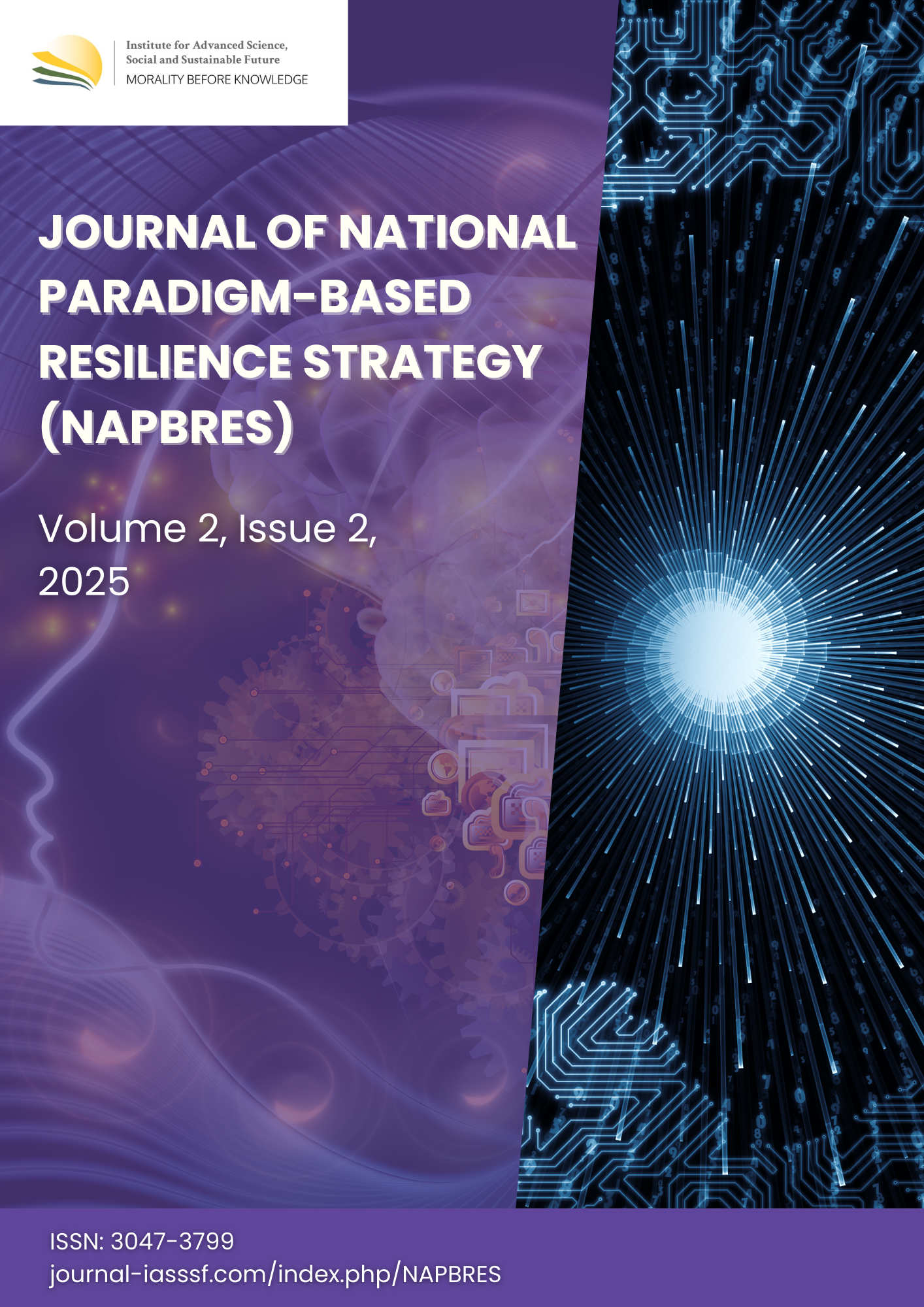Strengthening national resilience through integration of public policy and defense strategy in border regions
DOI:
https://doi.org/10.61511/napbres.v2i02.2025.2138Keywords:
public policy, national defense, paradiplomacy, national resilience, cross-country cooperationAbstract
Background: Border area management plays a strategic role in maintaining sovereignty, national stability, and public welfare. Indonesia's complex border areas are vulnerable to various threats, such as cross-border crime, illegal migration, and resource conflicts. Methods: This research uses a descriptive qualitative approach with a library research method to examine public policies and national defense strategies in managing Indonesia's border areas. Through a multidimensional approach, the discussion includes integration between security, economic development, diplomacy, and technology aspects, including the use of artificial intelligence-based technology, satellite surveillance systems, and blockchain. Findings: The results of the analysis show that successful border management requires synergy between institutions, strengthening human resource capacity, and implementing policies that are adaptive to geopolitical dynamics and climate change. Conclusion: A holistic approach that is oriented towards welfare and security is key to building border areas as the vanguard of defense as well as the center of national economic growth. Novelty/Originality of this Article: Defense strategies are directed at involving local communities and cross-country cooperation as part of a national resilience paradigm based on total defense.
Published
How to Cite
Issue
Section
Citation Check
License
Copyright (c) 2025 Tomy Ronaldi

This work is licensed under a Creative Commons Attribution 4.0 International License.















